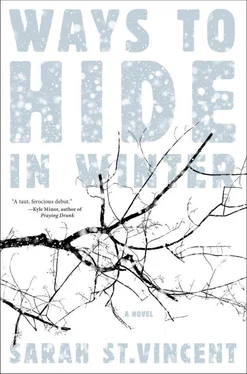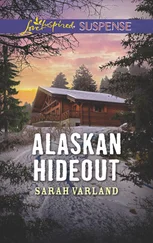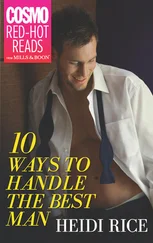The stranger watched my movements from the hostel porch, his eyes peering out above his scarf. Finally, he came down.
“You know,” I told him, “you’re not making yourself any less conspicuous, standing around up there all bug-eyed. Especially with the scarf.”
“You have a very pretty singing voice,” he said.
I looked at him and snorted, flinging a box into the dumpster.
“What are you doing?” he asked.
“Penance,” I replied, striding back into the dusty cave. “Apparently.”
He followed me to the doorway, concerned. “What?”
“Nothing. Never mind. It was a joke.” I wiped my face, feeling a passing tightness in my chest. “Sort of.”
With a carpet knife, I ripped open another box, rifled through its contents, and hauled it off the pile.
“What’s in there?” he asked.
“These?” I looked down. “Swedish Fish.”
“Do Swedish Fish actually go bad?”
I sighed. “That’s not the point.”
“I see.”
I threw the box away, but somehow, as I hoisted it into the bin, I felt the energy begin to drain out of me. I wiped my palms on my jeans and looked at him. He had turned to take in the view of the park, the endless swells of rock and tree, the bare limbs that almost looked as if they’d given up, given in, turned to stone.
It was still beautiful, in its way.
I walked over and stood beside him.
“If this were the last thing you ever saw,” he asked, “would you be happy?”
I was quiet for a moment, wondering what had prompted him to ask. Whether he somehow knew that I had once stood here asking myself the same thing.
“It’s not like that,” I said at length.
“What do you mean?”
“When something actually happens. When you think the end is coming. You don’t even notice what you see.”
He looked at me. I returned to the dumpster and pulled out the box I’d just tossed in.
“Have some Swedish Fish,” I said.
He took a packet from my hands. Before he could say anything, I launched myself back into the storeroom, tearing into another box, and by the time I came back out, he was gone.
It had been almost three months since I’d gotten a postcard from my brother.
On a Sunday, I finally called John back, holding the phone for a long moment before pushing the buttons. When he picked up, his voice had the same pleasant tone it always seemed to have.
“You said something about riding?” I asked.
He laughed. “I reckon I did. You want to come over?”
When I got there, I followed him up the hill to his barn, where we saddled up. Dust and bits of hay filtered down from the loft above, floating in the cold, bright light as I helped tighten the girths. They were good horses, not too old and not too young, trotting effortlessly over the swells of the fields to the line of trees where we picked up a trail. John sat heavily in the saddle but held himself straight, one hand on the pommel and the other on his hat. I tucked the reins between my fingers the way I’d been taught when I was little, feeling the horse’s sides under my legs as she exhaled and snorted, smelling the unmistakably animal odor of her sweat, listening to the creaking and clanking of the leather and stirrups.
On our way back to the barn, she started to canter and I let her, nervously at first, but then holding myself up so I was taut, poised above her, flying. She picked up speed, stretching her head forward. I’d forgotten what it was like to move so quickly, to feel so weightless, hooves pounding under me and a mane whipping my lowered face. Clods of mud flew up behind us, but the horse’s legs were steady, her fixation on the food and warmth to come giving her a certainty that carried us both. When she finally slowed, we were both panting. I let myself fall forward and patted her neck.
John trotted up behind me, bumping along instead of posting.
“I didn’t know you were gonna do that,” he said.
“Me either.” I knotted my fingers into my sweaty hair, pulling until it felt good, then dropping them.
We looked over the land. From here, the farm looked immense, the fields stretching away, interrupted by looming oak and elm trees. I preferred being on the mountain to this sense of space, but, I thought, this wasn’t so bad.
I closed my eyes and then opened them, feeling as if a heavy hand had removed itself from my head.
John was watching me.
“Thanks,” I told him, twisting around to look him in the face. “Really.”
He smiled widely, resettling his hat on his head.
“Any time,” he said.
On my way home, I sang along with the radio, tapping the wheel, cracking the window so my hair blew in the wind even though it was cold. At a convenience store, I reached up with my good arm and piled things into the basket, my clothes smelling of horse sweat, my muscles satisfyingly weary. When I swung my things onto the counter, I did it as if they weighed nothing.
As I approached my grandmother’s house, though, I saw a strange car parked in the drive. Its purple hood glinted in the sun, the fields of patchy snow and broken cornstalks reflected in its windows. Cradling the groceries in one arm, I pushed through the door to find my aunt Jeanine—the one from Pittsburgh—sitting at the dining room table with my grandmother and my parents.
My stomach sank.
“Oh,” I said, looking from one face to another.
Except for my grandmother, they looked startled, as if they’d forgotten I lived there. Two tall, clear bottles sat at the center of the table like shrunken monuments, and my parents and Jeanine had shot glasses in front of them. Jeanine’s face was brown and battered-looking, her hair a neglected gray pulled back in a bandanna. My father was leaning forward on his elbows, half-slumped; my mother, I noticed, looked pink and disheveled, as if she had just come in after walking very far in a brisk wind.
“Kathleen!” she crowed, focusing vaguely in the direction of my face and blinking. My grandmother glanced away and smirked.
Sighing through my nose, I left the bag of groceries at the bottom of the stairs and trudged up to my room. At the bottom of the closet, there was an old cardboard suitcase that had once been my grandfather’s, olive-green and smelling of cigar smoke. I had nearly filled it when I heard my grandmother’s slow, labored step on the stairs.
“You’re not staying?” she asked, not sounding surprised in the least.
“Nope.” I shoved a last pair of socks into the suitcase and closed it.
“Suit yourself,” she said, a phrase she had learned from TV. A thin, shining line of mucus on her upper lip showed where she had recently been connected to the oxygen tank, which I assumed was downstairs by the table, near her cup of cooling tea. Tea, too, was something she had lately been inspired to take up by the television. Apparently all the older women on there—all the contented ones, anyway—drank it. In my grandmother’s hands, it was like a wish for a happier fate.
I bent down to search for an extra pair of sneakers under the bed, and she clumped away toward her own bedroom, a place she had rarely gone since she’d begun sleeping downstairs on the couch. A few minutes later, she returned, clasping a faded piece of paper and holding it out to me. It was a twenty-dollar bill.
“What’s this?” I asked, staring at the note as she forced it into my palm with fingers that were surprisingly strong.
“What does it look like?” She turned toward the stairs.
I stared at her retreating back, the crooked coral dress she had gotten at a yard sale. “I don’t need your money, Grandma.”
“So?” She began lowering herself down the stairs, back toward the sounds of the party in the dining room, where glass was clinking and thumping against wood. “Go leave and do something fun. It’ll serve them right.”
Читать дальше












